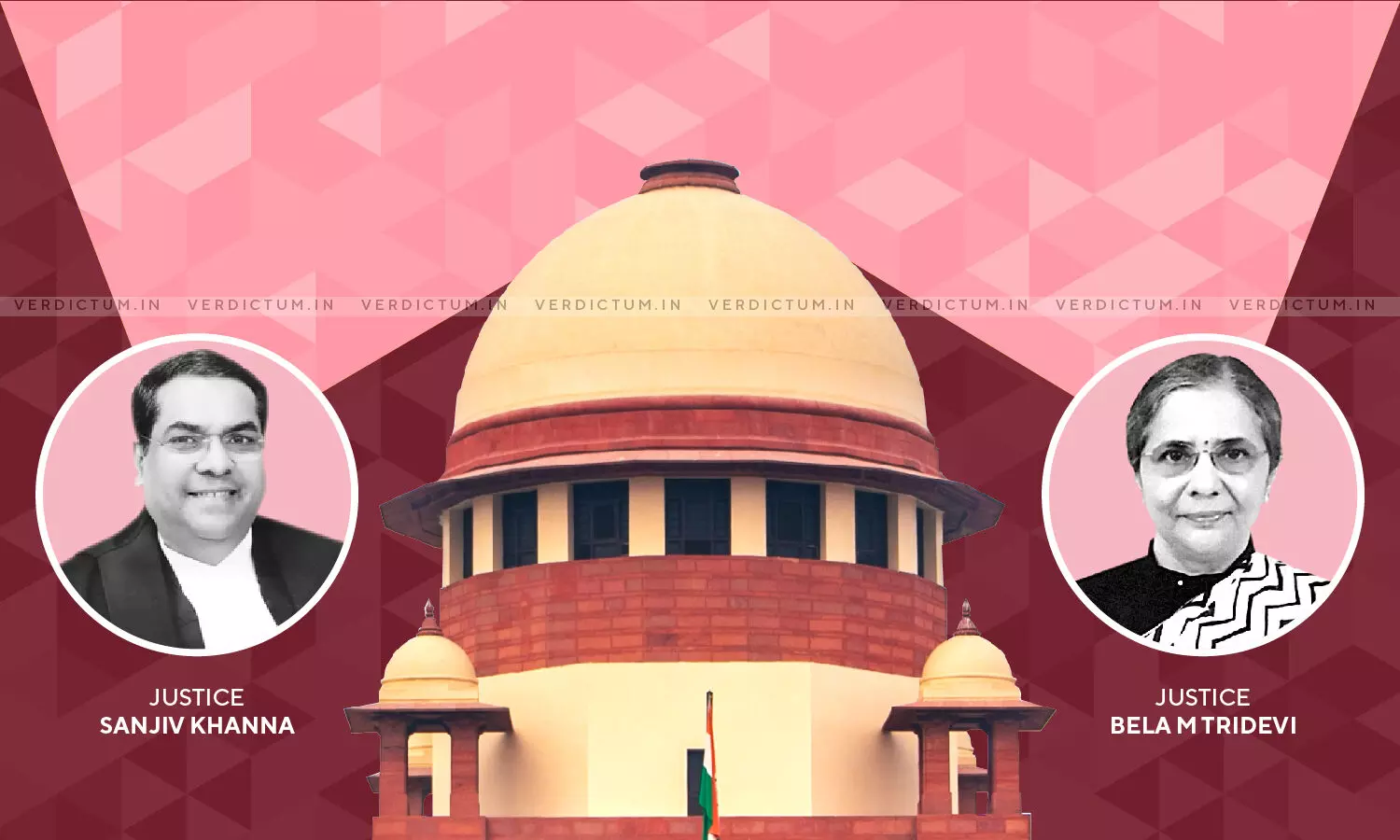
Revisional Jurisdiction Of NCDRC U/s. 21(b) Of Consumer Protection Act Is Limited, Can Only Be Exercised In Exceptional Circumstances - SC
 |
|A two-judge bench of the Supreme Court comprising of Justice Sanjiv Khanna and Justice Bela M Trivedi, asserted the National Consumer Dispute Redressal Commission (NCDRC) must exercise the power of revisional jurisdiction namely when it appeared that the State Commission had exercised a jurisdiction not vested in it by law, or had failed to exercise jurisdiction so vested, or had acted in the exercise of its jurisdiction illegally or with material irregularity. Moreover, the Court observed that Section 5 of the Limitation Act did not apply to the institution of civil suit in the Civil Court.
In the present case, the Appellant filed a case before the Consumer Disputes Redressal Forum contending that he had a saving account with the Respondent-Bank. The account number had been changed twice. An amount of Rs. 500 was deposited in the second account number. Thereafter, the Appellant deposited a cheque worth Rs. 3,00,000/- drawn on SBI of the said Branch issued by one Prabir Pradhan. The Appellant further noticed that his passbook showed a balance of Rs. 59/- only, though he had not made any transactions.
On the enquiry having been made, the Respondent-Bank informed the Appellant that there was another customer by the name Sunil Maity (I.e. the Respondent no. 2 herein) whose account number was wrongly given. Respondent No. 2 (i.e. Sunil Maity) had withdrawn the sum of Rs. 1,00,000/- and Rs. 2,00,000/- respectively from the said account number. The Appellant thereafter filed the complaint before the Consumer Forum against the Respondent-Bank and the said Sunil Maity (I.e. the Respondent no. 2).
The Consumer Forum allowed the complaint, after which the Respondent-Bank preferred the First Appeal before the State Consumer Disputes Redressal Commission, West Bengal which partly allowed the appeal. The State Commission while confirming the rest of the order passed by the Consumer Forum, modified it to the extent that the order for fine @ Rs. 100/- per diem was struck off. The Respondent-Bank further preferred the Revision Petition before the National Commission under Section 21 (b) of the Consumer Protection Act. The National Commission allowed the said revision application vide the impugned order as stated hereinabove. This impugned order has been challenged before the Apex Court.
Mr. Arpit Gupta appeared on behalf of the Appellants while Mr. Jitendra Kumar appeared for the Respondent before the Supreme Court.
The primary issues in this case were –
- Whether the National Commission could call for a detailed report from the Respondent-Bank under its power of revisional jurisdiction?
- Whether Section 5 of the Limitation Act is applicable to the institution of a civil suit in a Civil Court?
The Court with respect to the revisional jurisdiction of the National Commission observed that - "It is needless to say that the revisional jurisdiction of the National Commission under Section 21(b) of the said Act is extremely limited. It should be exercised only in case as contemplated within the parameters specified in the said provision, namely when it appears to the National Commission that the State Commission had exercised a jurisdiction not vested in it by law, or had failed to exercise jurisdiction so vested, or had acted in the exercise of its jurisdiction illegally or with material irregularity. In the instant case, the National Commission itself had exceeded its revisional jurisdiction by calling for the report from the respondent-bank and solely relying upon such report, had come to the conclusion that the two fora below had erred in not undertaking the requisite in-depth appraisal of the case that was required."
Moreover, the Court opined that though a party could produce additional evidence at the appellate stage, the same has to be within the four corners of law i.e. as contemplated in Order 41, Rule 27. It was further held that the party had to establish that notwithstanding the exercise of due diligence, such evidence was not within its knowledge or could not even after due diligence, be produced by it at the time when the decree appealed against was passed. Thus, the Court observed that there existed a vast difference between the exercise of appellate jurisdiction and the revisional jurisdiction. In the present case, the Court held that the calling for the report by the National Commission on its own from the officer of the bank was absolutely unwarranted and erroneous.
Thus, the Court held that the National Commission had grossly erred in holding that the Appellant would be at liberty to seek remedy in the competent Civil Court and could even file an application under Section 5 of the Limitation Act, 1963. The Court observed that such an observation passed by the National Commission was in utter ignorance of the provisions of the Limitation Act since Section 5 of the Limitation Act did not apply to the institution of a civil suit in the Civil Court.
Thus, the impugned order passed by the National Commission was held to be highly erroneous and accordingly set aside. The Court restored the order passed by the State Commission and allowed the appeal accordingly.
Click here to read/download the Judgment